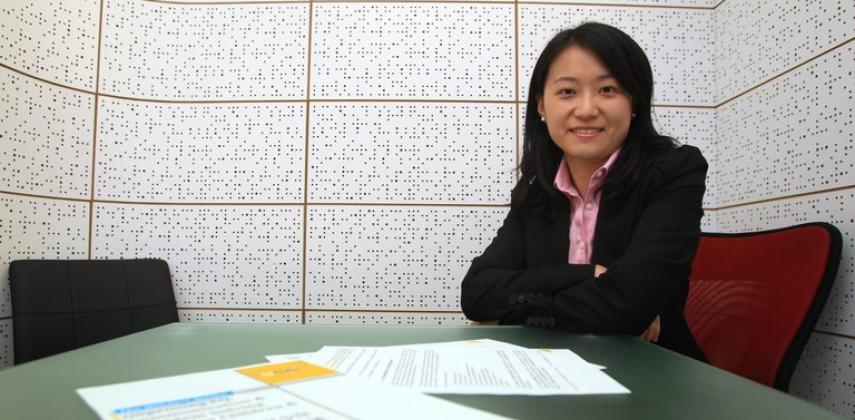Being brought up in a solid middle-class family, Louise Chan soon learned about the importance of integrity. To this day, it’s a code by which she lives, in both her career and personal life. But as we all know, life is far from simple, disrupted at times by misunderstandings and disputes, which need to be resolved. Otherwise, they threaten the balance and development of society. Because of this and after years of working at a bank, Chan decided to contribute in a different way, giving back to society by helping to resolve such conflicts. Today, as a mediator accredited with the London-based Centre for Effective Dispute Resolution, and director of the mediation and arbitration business of CLLC Dispute Resolution Services, Chan works daily as a peacemaker.
Why did you decide to become a mediator?
Where there are people, there are conflicts. By resolving these, productivity is increased and society is more harmonious. I decided to become a mediator to benefit society. We need people with a good heart and skills. When I was working in the banking industry, I was familiar with banking and finance but lacking in legal knowledge. I thought it would be useful if I also obtained formal qualification in law and legal knowledge, so I took the advice of my mentor, Charles Lam, to take up a master of law degree at the University of Hong Kong. I have also taken took up some special courses in mediation, so that I can apply what I have learned and experienced to become a mediator.
Who or what inspires you to achieve?
My mentor Charles Lam. We met through a mentorship programme after I left university and while I was working for a global bank. I was really thankful to be able to get to know him and learn from him. He is a leader, a mentor and a true friend to me. He has long-term vision, a caring heart for society and is a man of integrity. He has also developed a very unique set of methods and theories to help young people find the right career and develop into successful people.
What makes a good mediator?
Quality mediators need to have in-depth knowledge and experience of the industry and the subject that they mediate on. For example, a mediator on banking and finance needs to know the operations, business processes and products of the industry. If a mediator is not familiar with the industry, clients have to spend a long time explaining the situation to the mediator, making the mediation inefficient and expensive, while also reducing the chances of success. Apart from banking, we also see mediators specialising in a domain, such as construction and information technology.
What are your future goals?
My childhood dream was to be a successful person in whatever career or position, but my current dream is to be a happy and successful person. I believe that this is also the goal of many teenagers. This is the reason why I would spend time – both on and off the job – with young people to discuss useful tips, tools and models so I could share some experiences with them on how to become a happy and successful person. I think I have yet to reach the pinnacle of my career and I will continue to work hard. I believe the best is yet to come.
What is your motto?
We face many obstacles and hardships in life. Don’t back down. Always stay positive. Whatever you do in life, the sense of achievement is more important than the hardship. Reminding yourself of what you have achieved so far can help you through difficult times.
How do you balance your work and personal time?
That is a tough one, as everyone in Hong Kong works for really long hours. I am lucky that I enjoy what I do and I think of work as part of my personal life. There are several things I do in my free time, such as going for a swim. I work out, play the piano and listen to music to freshen my mind.
What lies in the future for mediators in Hong Kong?
Opportunities. After the Practice Direction 31 came into force in January 2010, parties were encouraged to explore the possibility of mediation before taking their civil disputes to court. Next year, the Financial Dispute Resolution Centre (FDRC) will be established to help resolve disputes in the finance and banking industries. This will also create opportunities for mediators.
What tips can you share about job market survival?
Successful people are those with high integrity. Building up one’s career with integrity takes faith and discipline. There is no short cut – you have to believe it to achieve it. Be disciplined, have a plan for what you want to do and fully implement it.
First, when making career choices, be true to yourself. Don’t just go for a particular job because it is considered an up-and-coming industry. Society is always changing, and what is considered a prestigious job today may not be the case tomorrow. Never evaluate success by going to work for a certain company or taking up a particular position. Second, keep learning and attending courses. Third, seek advice from those who are qualified and trustworthy. Fourth and last, do not be the prisoner of your own perception. Open your eyes and heart to the world.
What are your thoughts on the seemingly increasing amount of disputes that have taken place over recent years in Hong Kong?
Society needs a more positive outlook. People need to be open to learning and not be so self-centred. Blaming and scolding change nothing and only slow down individual and societal development.
Do you think women are sufficiently respected at work?
More and more women are attaining higher positions in the workplace. But more men still have higher rankings. I look forward to seeing more women up there.


